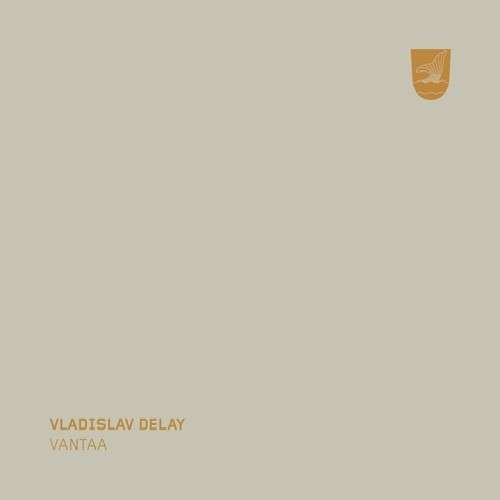A new record from Sasu Ripatti, regardless of which guise he’s currently operating under, is always a cause for celebration. As a designer of sound, the Finland-born Ripatti is second to none: he’s possessed of a rare ability to pack a stunning amount of textural and compositional detail into ostensibly minimalist pieces of music. More than that, though – and this is the factor that’s remained at the heart of his entire recording career so far – he’s repeatedly put those technical skills to the service of some of the most sensuous, intricate and emotionally engaging electronic music of the last fifteen years.
Take Luomo, his vocal house project. His 2000 masterpiece Vocalcity‘s seamless melding of finely detailed granular textures and off-kilter percussion was rhythmically complex, while remaining both danceable and devastatingly sexy, and proved hugely influential on much of the following decade’s worth of club music. Or his 2006 Tulenkantaja album as Uusitalo, which tightened up Luomo’s looser edges into sumptuous, dubby, glitch-ridden techno. Or his more recent work as drummer for the Moritz Von Oswald Trio, where his jazzy, tactile rhythms were played out on homemade metal drums, adding the spidery clack of arthropod mandibles to the Trio’s sprawling instrumental dub.
Similarly, Vladislav Delay, generally Ripatti’s output for more self-consciously ‘experimental’ (whatever that means) music, never falls below a uniform standard of sonic beauty. That’s one reason why, for what essentially amounts to greyscale, minimalist electronic dub, his records under the Delay alias are unusually accessible to listeners that might otherwise find such a niche concern rather offputting.
Vantaa, his debut for Berlin’s Raster Noton label and first since 2009’s Tummaa (barring this year’s Vladislav Delay Quartet record), is no exception. On the surface it’s a rather uniform listen, having made a slight return to the murky, submerged landscapes and muted tones of his earlier albums for Chain Reaction (2000’s Mutila, one of his best ever records, is quite a close comparison). But it offers astonishingly rich pickings – its pillowy-soft surfaces might have all the edges filed away, but there’s a stunning amount of detail packed into each of its eight tracks. Take ‘Lauma’, one of Vantaa‘s more rousing moments. Despite lacking total clarity (like the rest of the album, it’s best to imagine that you’re hearing it as if though several feet of warm water), it builds to a tsuami’s worth of force, crashing and roiling from the speakers for several minutes before gradually spreading outward and losing momentum. Many of this year’s washed-out, bottom-of-a-swimming-pool lo-fi producers take note: this is how to make murky music with real force and physical impact, which necessitates involvement rather than suggesting the listener merely disengage and ‘zone out’.
Last album Tummaa was a departure from the more synthetic forms common to much of Ripatti’s earlier Delay material, which had previously remained more firmly in line with Berlin’s (his home city at the time) dub-techno innovators. Though the response to the album wasn’t as unambiguously positive as with many Delay records, to these ears it was triumph – its best tracks found Ripatti transposing his ear for intricate detail and implicit melody to a sound palette that was far more organic, concerned more with landscape and the natural world than the harder, more urban emulsions of a record like Mutila. Vantaa definitely feels like a post-Tummaa album: it’s geographically varied and deliciously fluid in places, its constant background roar ever-shifting and filling all the cracks in the mix with viscous liquid. Album highlight ‘Levite’ is a stunning seven minutes of pastoral dub techno – the most overtly melodic thing on here, its background drones set the stage for a half-formed beat to begin emerging through the mist. A little like the sultry, shapeshifting dance music of Laurel Halo’s Hour Logic EP, here it sounds as if Ripatti has set a bunsen burner on high heat beneath the album’s shapeless stew, boiling away all the excess liquid until rhythms begin to crystallise out like tiny, hard pebbles of salt.
With Ripatti’s high productivity rate (this is his third album this year, after a new Luomo record Plus and the Vladislav Delay Quartet album), on the surface it might be tempting to presume Vantaa would be ‘just’ another Vladislav Delay record. In many ways it is – he doesn’t dramatically reinvent the wheel here, remaining within similar boundaries that the project has explored since its inception. But it does represent a further stepping stone in Ripatti’s ongoing love affair with dub, delay and decay. It’s certainly one of the most casually beautiful things I’ve heard all year, and comes highly recommended – both for those familiar with this sort of music, and those ready to take the plunge for the first time.


